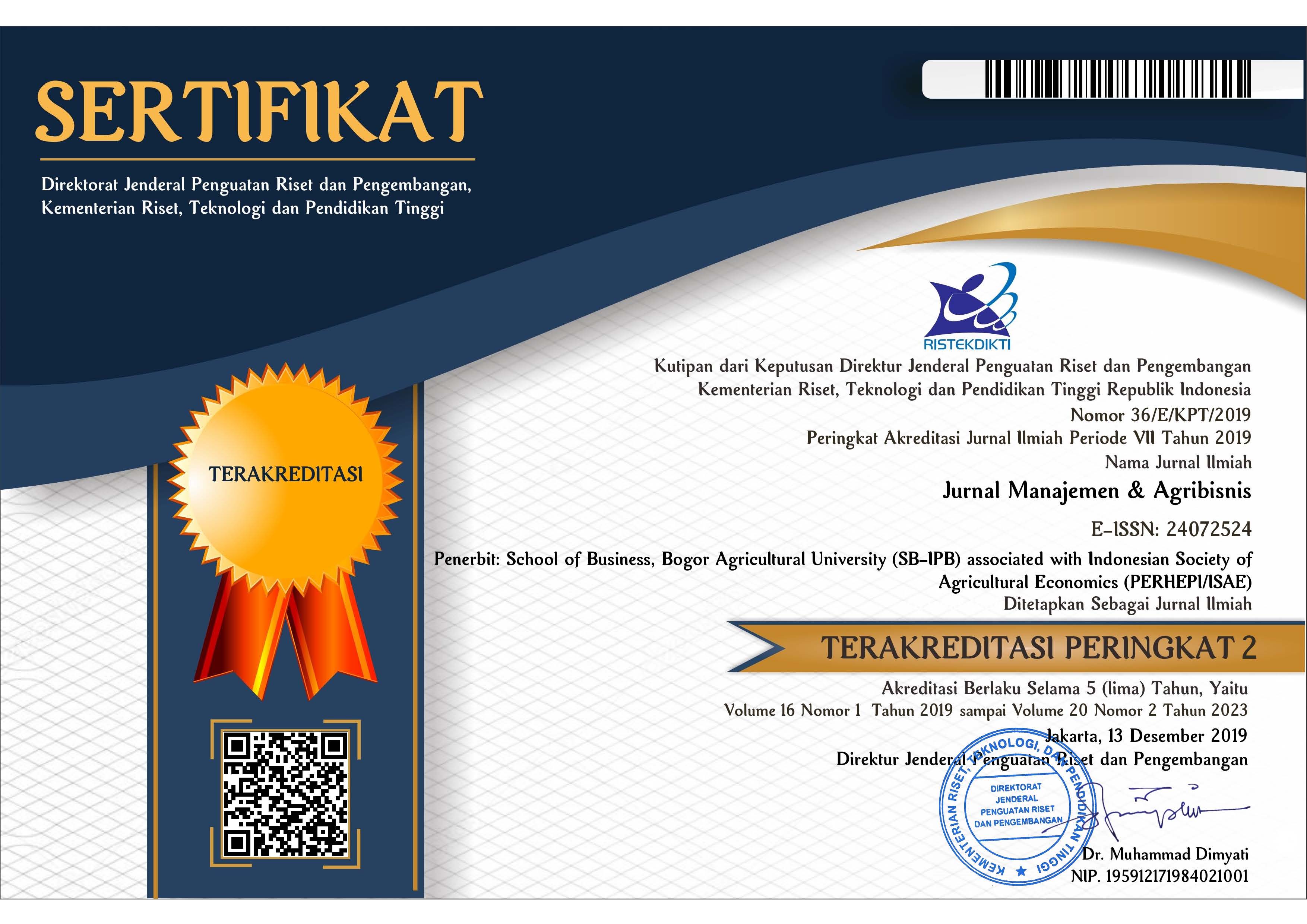Analysis on Indonesian Sustainable Palm Oil (ISPO):A Qualitative Assessment the Success Factors for ISPO
DOI:
https://doi.org/10.17358/jma.9.2.39-48Abstract
ISPO (Indonesian Sustainable Palm Oil) serves as the baseline of sustainability standards for palm oil industry and is expected to improve the competitive advantage of Indonesian palm oil industry. ISPO was introduced by the government in March 2011 and currently most of plantations are in process of applying ISPO. The objective of this research is to analyze success factors affecting implementation of ISPO. Using qualitative method of in-depth interview on 20 selected experts representing actors mapped in the value chain of palm oil industry. The results depicted that; very little companies apply sustainable principles hence ISPO is needed for industrial standards, success factors affecting ISPO implementation, and necessary conditions for ISPO implementation. SWOT technique resulting 8 recommended strategies to be applied for ISPO implementation. Acknowledging ISPO applies to upstream industry (plantations and mills) only, managerial implication for this research is the need to develop of a grand master plan for Indonesian palm oil Industry by developing integrated policies complementing ISPO aiming for sustainability, growing and developing downstream industry to add value to CPO product, and for upstream industry to be developed by farmers and cooperatives while big investors to develop mills and downstream industry.
Keywords: Palm Oil, ISPO, Sustainable Certification, Success Factors, Qualitative
Downloads
Downloads
Issue
Section
License
Authors who publish with this journal agree to the following terms:
- Authors retain copyright and grant the journal right of first publication with the work simultaneously licensed under a Creative Commons Attribution License that allows others to share the work with an acknowledgement of the work's authorship and initial publication in this journal.
- Authors are able to enter into separate, additional contractual arrangements for the non-exclusive distribution of the journal's published version of the work (e.g., post it to an institutional repository or publish it in a book), with an acknowledgement of its initial publication in this journal.
- Authors are permitted and encouraged to post their work online (e.g., in institutional repositories or on their website) prior to and during the submission process, as it can lead to productive exchanges, as well as earlier and greater citation of published work (See The Effect of Open Access).


.png)



